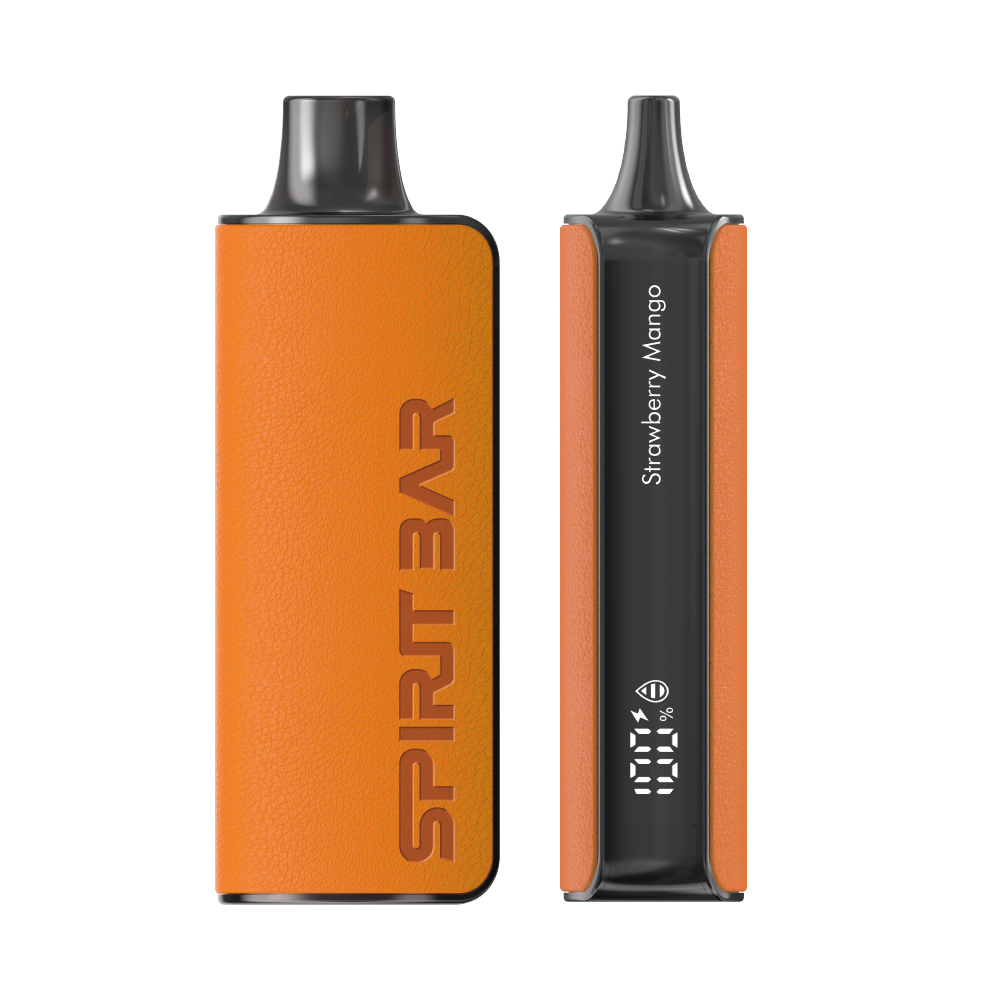Vape Away: Do Hospital Rooms Have Vape Detectors or Can You Puff in Peace?
So, you’re wondering if hospital rooms have vape detectors? Well, the answer is not as straightforward as you might think. Hospitals do take smoking and vaping seriously, as they can be harmful to patients, visitors, and healthcare professionals. However, the policies regarding vaping differ from hospital to hospital.
Some hospitals have implemented vape detectors to ensure that patients, visitors, and healthcare professionals are not exposed to second-hand vapor. These detectors are similar to smoke detectors and can detect the presence of vapor in the air. If you’re caught vaping in a hospital room with a vape detector, you could face consequences such as fines or even being asked to leave the hospital.
On the other hand, some hospitals do not have vape detectors, but that doesn’t mean you can just vape freely in your hospital room. It’s important to note that hospitals enforce strict smoking policies, which include the use of e-cigarettes. So, before you decide to vape in a hospital room, it’s best to check with hospital staff or the hospital’s policies to avoid any potential consequences.
Hospital Room Mysteries
https://www.youtube.com/watch?v=AIG3tAVx1H4&embed=true
If you’ve ever been hospitalized, you’ve likely wondered about some of the mysteries surrounding hospital rooms. Do they have cameras? Do they monitor your every move? And perhaps most importantly, do they have vape detectors?
Do Vape Detectors Exist?
The short answer is yes, they do exist. However, they are not as common as smoke detectors. According to The Building Code Forum, the International Building Code requires smoke detectors in patient rooms, but not necessarily vape detectors.
That being said, some hospitals may choose to install vape detectors as an extra precaution. The Packaging Insider notes that unlike conventional cigarettes, vapes create vapor as a byproduct, not smoke. This means that they may not set off a smoke detector, but they could still be a fire hazard.
The Great Vape Debate
The use of vapes in hospitals is a controversial topic. While some argue that it is a personal choice and should be allowed, others believe that it could be harmful to other patients and hospital staff.
This disposable vape captures the daring spirit of the high seas with its flask styling and signature pirate e-juice flavors. The extraordinary battery life provides 9000 indulgent puffs for extended vaping pleasure. Live boldly and freely with the Jack's Flask - a legendary vaping experience fit for a pirate's adventures.
According to whatisvape.com, hospitals prioritize patient well-being and safety, and any activity that could disrupt this equilibrium, such as vaping, requires careful consideration.
So, while it may be tempting to sneak a quick puff in your hospital room, it’s best to err on the side of caution and avoid vaping altogether. After all, the last thing you want is to set off a vape detector and cause a commotion in the already chaotic hospital environment.
The Nose Knows: Human Detectors
So, you’re wondering if hospitals have vape detectors. Well, did you know that human noses can detect the scent of vaping? It’s true! While there may not be any fancy sensors installed in hospital rooms, there are still ways that hospital staff can tell if you’ve been vaping.
First of all, let’s talk about the obvious. If you blow a cloud of vapor into the air, it’s going to be pretty obvious to anyone who walks into the room. Even if the vapor dissipates quickly, there’s still a chance that someone will catch a whiff of it. So, if you’re trying to be sneaky, you might want to think twice about vaping in a hospital room.
But what if you’re using a vape pen that doesn’t produce a lot of visible vapor? Well, that’s where the human nose comes in. Hospital staff are trained to be observant, and they may notice the scent of vaping even if they can’t see any visible vapor. In fact, some hospitals even use specially trained dogs to detect the scent of certain diseases, so you can bet that they’ll be able to pick up on the scent of your vape.
So, what does this mean for you? Well, if you’re a smoker or vaper, you might want to be mindful of the fact that hospital staff may be able to tell if you’ve been indulging in your habit. While there may not be any official policies in place regarding vaping in hospital rooms, it’s always a good idea to be respectful of the people around you and try to avoid doing anything that could potentially cause a disturbance.
Vapes and Hospital Policies
So, you’re wondering if hospital rooms have vape detectors? Well, first things first, let’s talk about hospital policies.
Hospitals are designated as smoke-free zones to protect the health of patients, visitors, and staff. This means that smoking traditional cigarettes is explicitly prohibited in these areas. However, the rules surrounding the use of e-cigarettes and vaping devices may not be as clear.
Most hospitals in the United States include e-cigarettes in smoke-free policies that were developed for cigarette smoking. This means that vaping is generally not allowed in hospital rooms.
But why is that?
Well, for one thing, vaping can generate aerosols that, under specific conditions, trigger smoke alarms. This can cause unnecessary panic and confusion for hospital staff and patients. Additionally, vaping can be a nuisance to other patients who may be sensitive to the smell or vapor.
This disposable vape captures the daring spirit of the high seas with its flask styling and signature pirate e-juice flavors. The extraordinary battery life provides 9000 indulgent puffs for extended vaping pleasure. Live boldly and freely with the Jack's Flask - a legendary vaping experience fit for a pirate's adventures.
Now, you might be thinking, “But wait, what if I just take a quick puff in the bathroom or step outside for a vape break?” Sorry, but that’s still a no-go. Hospital policies typically extend to the entire hospital premises, including bathrooms and outdoor areas.
So, the bottom line is, if you’re a vaper, it’s best to leave your vape at home when visiting someone in the hospital. Stick to the designated smoking areas outside the hospital if you need to indulge. And if you’re a patient, follow the hospital’s rules and regulations to ensure the safety and comfort of everyone around you.
Remember, hospitals are places of healing, not cloud chasing.
Vape Detection Methods
So, you’re wondering if hospital rooms have vape detectors? Well, the answer is not a straightforward “yes” or “no.” Some hospitals may have installed vape detectors, while others may not have.
If you’re curious about how vape detectors work, here are a few methods that they use to detect vaping:
-
Particulate Detection: Some vape detectors work by detecting the particles that are released when you exhale vapor. These detectors use sensors to pick up on the tiny particles in the air and trigger an alarm if they detect vaping.
-
Chemical Detection: Other vape detectors use chemical sensors to detect the chemicals that are released when you vape. These detectors can detect specific chemicals, such as nicotine or THC, and can alert hospital staff if they detect them.
-
Sound Detection: Some vape detectors use microphones to detect the sound of vaping. When you exhale vapor, it creates a distinct sound that these detectors can pick up on.
-
Visual Detection: Finally, some vape detectors use cameras to detect vaping. These detectors can detect the vapor cloud that is released when you exhale and can alert hospital staff if they detect it.
Of course, not all vape detectors are created equal. Some are more sensitive than others, and some may be more effective at detecting vaping than others. Ultimately, it’s up to the hospital to decide which type of vape detector to use (if any).
So, there you have it – a brief overview of the different methods that vape detectors use to detect vaping. Whether or not your hospital room has a vape detector is ultimately up to the hospital, but it’s good to know how they work in case you ever encounter one.
The Science of Vape Detection
So you’re wondering if hospital rooms have vape detectors. Well, first let’s understand how vape detectors work.
Vape detectors use sensors to detect the chemicals in the air that are released when someone vapes. Some detectors use particle sensors to detect the tiny particles that are released when someone exhales vapor. Others use chemical sensors to detect specific chemicals that are released when someone vapes.
But how do they know the difference between vape and smoke detectors? Well, smoke detectors are designed to detect the presence of smoke particles, while vape detectors are designed to detect the chemicals in vapor. So, if you’re thinking about trying to trick a vape detector by blowing smoke into it, you’re out of luck.
Now, you might be wondering if vape detectors are foolproof. The answer is no. Some vape detectors can be triggered by other chemicals, such as cleaning products or air fresheners. So, if you’re planning on vaping in a hospital room, you might want to think twice. Not only is it against hospital policy, but you could also trigger a vape detector and get caught.
In conclusion, yes, hospital rooms can have vape detectors. So, if you’re a vaper, it’s best to avoid vaping in hospital rooms altogether. And if you’re a hospital administrator, it’s a good idea to invest in vape detectors to ensure the safety and health of your patients and staff.
Vape Detection: Fact or Fiction
You may be wondering if hospitals really have vape detectors installed in their rooms. The answer is yes, they do! Hospitals have implemented various measures to promote a safe and healthy environment for patients, visitors, and staff, and one of these measures includes the installation of vape detectors in hospital premises.
Vape detectors are designed to detect the presence of electronic cigarettes or vaping devices in hospital buildings. They work by detecting the particles produced by vaping and alerting the hospital staff if someone is using a vaping device in a hospital room.
But wait, you might be thinking, can’t you just blow the vapor out the window or into a tissue? Unfortunately, vape detectors are smart and can detect even the smallest particles produced by vaping. So, if you’re thinking of vaping in a hospital room, think again!
It’s important to note that vape detectors are not just found in hospitals. Hotels have also started installing vape detectors in their rooms to prevent damage to the room and to identify when guests are smoking or vaping in their rooms. So, the next time you’re in a hospital or hotel room, be mindful of your vaping habits, or you might just trigger a vape detector and face the consequences!
The Future of Vaping in Hospitals
Let’s face it, vaping has become a popular trend in recent years, and it’s not going away anytime soon. However, the question remains, what does the future of vaping in hospitals look like?
While hospitals have always been smoke-free environments, the rise of vaping has left many wondering if hospitals will start to implement vape detectors. The truth is, it’s hard to say.
On one hand, vaping is still a relatively new phenomenon, and there is still much to learn about its long-term effects on health. On the other hand, hospitals are places where people go to get better, and vaping could potentially hinder that process.
It’s possible that hospitals may start to implement stricter rules regarding vaping, or even ban it altogether. Alternatively, they may allow vaping in designated areas outside of the hospital.
One thing is for sure, the future of vaping in hospitals is uncertain. But one thing is certain, if you’re a vaper, it’s always best to be respectful of your surroundings and those around you.
So, if you find yourself in a hospital, it’s probably best to leave your vape at home. After all, there are plenty of other places to indulge in your vaping habit.


